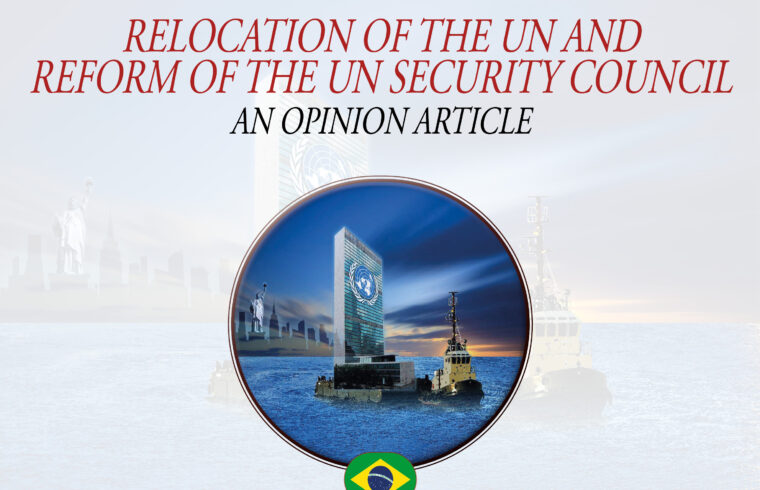Joana D’arc Silva
International Relations Student, State University of Paraíba (UEPB), Joanadarcsilva12357@gmail.com
Lara Souza Vidal De Negreiros
International Relations Student, State University of Paraíba (UEPB), laraSvidall@gmail.com
The United Nations Charter is intended to serve as a forum responsible for international order, committed to upholding the fundamental principles that govern sovereign states. Its purpose is to transcend legal norms, representing a manifesto of hope and commitment to peace, security, and global cooperation. However, when we observe recent history and the actions of the United States on the global stage, we are confronted with a disturbing irony that calls for reflection and critical analysis.
Geopolitical reality reveals an alarming contradiction. The United States, one of the world’s leading powers and a founding member of the UN, has a history marked by military interventions, wars, and geopolitical interests that often clash with the purposes enshrined in the United Nations Charter. It is ironic that the U.S. presents itself as a defender of peace and global stability, yet is often perceived as a protagonist in conflicts around the world. From interventions in the Middle East to disputes in Latin America and the African continent, U.S. military presence is frequently seen as a projection of power and influence, largely misaligned with the universal values of peace and justice.
It is indeed true that since 2001, the American government has promoted the War on Terror in the Middle East with the aim of controlling the region and its resources. In doing so, the Americans have led numerous interventions in the region. These invasions ignored the underlying causes of terrorism, resulting in significant human losses and substantial costs to society. Furthermore, it is imperative to remember that during the Cold War, it was the U.S. that trained and equipped the Taliban terrorist group, as it was in American interests to enable the local population to fight against the Soviets, who at one point occupied Afghanistan. Due to this, it is necessary to put the U.S.’s participation in various international conflicts over time into question and to assess whether there is coherence between its actions and the UN’s purposes. Can a state that generates so many conflicts be honored as the headquarters of the world’s largest organization for peace and cooperation?
The role of the UN in international relations has always been highlighted for its multifaceted nature and for what is expected of it. Since its inception, the organization has not experienced prolonged periods of stability. Institutionalized during wartime, and with the objective of maintaining international peace, the UN faces criticism regarding the imposition of Western values and norms. Often, its political initiatives are influenced by the objective of promoting Western values, such as liberal democracy and free markets, without taking into account the cultural diversities and different realities of various regions.
Additionally, the United Nations Security Council, composed of the U.S., Russia, the United Kingdom, France, and China, defines the rules of the game for the UN and is considered the most powerful body in the international system. It was created to serve the post-Cold War scenarios, that is, it was created in an international context that no longer accommodates the current global landscape. The UNSC is an example of how the bodies within the UN were institutionalized with objectives aligned with the power game, aiming to continue the global dynamic wherein the permanent states dominate global economic and political mechanisms, with the intent to impose models of democracy on other countries without considering local relativities.
Finally, we reaffirm our full support for the study and dedication to the relocation of the UN, a project that should be considered with greater relevance. Moreover, we emphasize the importance of potentially relocating the UN to marginalized regions. Establishing the UN headquarters in countries on the African continent, in South America, or even in Asia, would have a profound impact on the history of the organization as an essential actor in the international arena, and in fulfilling its objectives of peace, security, and global cooperation. Additionally, the physical presence of the UN in these regions would significantly impact societies by enhancing the perception of different global realities and increasing visibility for potential solutions to controversies.











